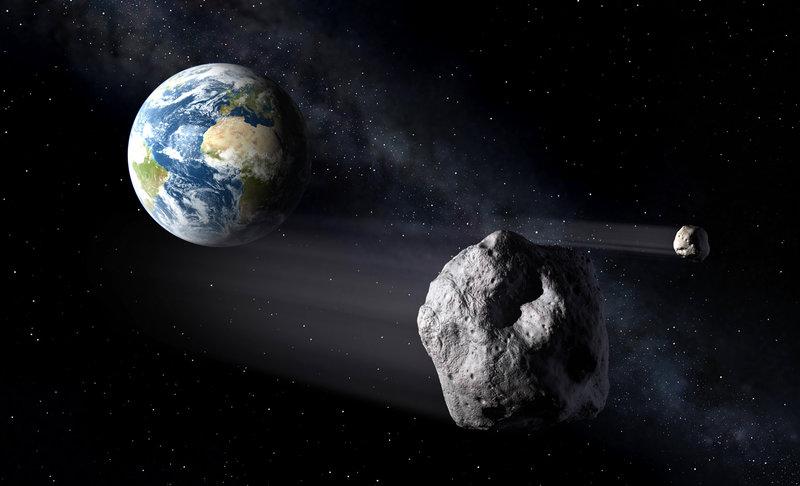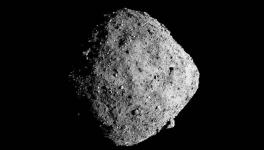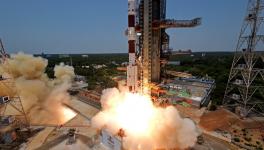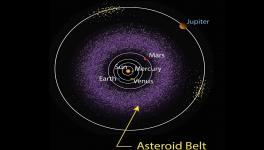How to Save Humanity From an Asteroid Hit? We Are Closer to the Answer

One of the biggest external threats to humanity and all other life on Earth is perhaps an asteroid hit. The one that crashed on Earth 65 million years ago wiped out dinosaurs, as well as 80% of all Earth’s lifeforms. And the one in 2013 that hit Russia came out of the blue and injured more than a thousand people. In sci-fi movies, we attack asteroids with nuclear bombs. In reality, we might have to do the same.
Researchers in Russia have calculated how big of a nuke head will be required to destroy an asteroid headed our way. They found that a 200 metres-wide stony astronaut will require a 3-megaton nuclear bomb to obliterate it.
To determine this, the team looked at the composition and structure of the remains of the asteroid that hit Russia in 2013, and used that to manufacture small artificial asteroids. They then hit these fake asteroids with laser pulses to determine the strength of the bomb that will be needed. The study, published in Journal of Experimental and Theoretical Physics, also says that the impact of the bomb would be utilised better if it was exploded inside a cavity within the asteroid. Another finding was that a single powerful nuclear explosion would be just as powerful as a series of smaller ones.
Vladimir Yufa, co-author of the study said in a statement, "By accumulating coefficients and dependencies for asteroids of different types, we enable rapid modeling of the explosion so that the destruction criteria can be calculated promptly. At the moment, there are no asteroid threats, so our team has the time to perfect this technique for use later in preventing a planetary disaster.”
Right now, the research team has only examined the possibility of destroying stony asteroids. The researchers say in their future work, they will also be looking at metallic asteroids, and examine how to best make use of the cavities and shape of the asteroid in its destruction.
The preference would still be to be able to deflect asteroids to shift course rather than nuking them. This can be done by slamming what are called “kinetic impactors” into the asteroid. This will require multiple impacts over a long period of time, possibly over decades. Deflection then can only work if an asteroid is detected coming towards us giving us enough time to deal with it. If we only have a few weeks before impact, then nuking it might be the only option.
But these ideas still remain theoretical. NASA has also designed a spacecraft that will have the capability of dealing with incoming asteroids. The spacecraft will either nudge the rock away using a forceful impact, or blow it up with a nuclear blast. They have named this concept vehicle as HAMMER (Hypervelocity Asteroid Mitigation Mission for Emergency Response). NASA plans to build a fleet of HAMMERs, each weighing about 8 metric tons. In case we can detect an asteroid early enough, the fleet can be sent out to hit the asteroid in a direction sending it off its collision course to Earth.
This spacecraft still only exists in the concept stage, with NASA unwilling to reveal the cost estimates for it.
The crucial requirement is still to put in more resources in detecting asteroids. In the case of the asteroid that hit Russia, we were caught off-guard as it evaded all detection instruments. Until now, we have only discovered about one-third of all asteroids near Earth. Until we do not prioritise detection, any measure to destroy or deflect asteroids may not be sufficient.
Get the latest reports & analysis with people's perspective on Protests, movements & deep analytical videos, discussions of the current affairs in your Telegram app. Subscribe to NewsClick's Telegram channel & get Real-Time updates on stories, as they get published on our website.






















